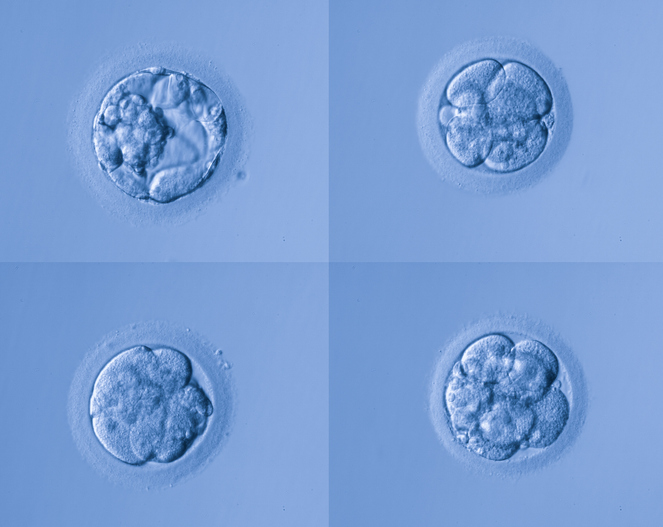.png)
.png)
Egg donation is a generous act that can help people struggling with infertility build their families. It is a decision that requires careful consideration and understanding of the process and potential implications involved.
One question that often arises in the minds of prospective donors is whether they will regret their decision to donate their eggs. In this article, we will explore the various factors that can influence the decision to donate eggs and the potential emotional and physical effects of egg donation.
Deciding to donate your eggs
Egg donation is not for everyone. And the decision to donate eggs is a deeply personal one, often driven by the desire to help a family struggling to conceive. Many donors find it rewarding to know that they have helped someone else fulfill their dream of having a child.
In addition to those struggling with infertility, there are other groups of individuals who may need the help of an egg donor. For example, cancer survivors who have undergone chemotherapy or radiation therapy may have reduced fertility or premature menopause. By using donor eggs in IVF, these individuals can have a chance at conceiving and starting a family.
Additionally, LGBTQ+ couples or individuals who wish to start a family may need the help of an egg donor. We work with a lot of gay dads, for instance, who need a donor egg to create an embryo that can be carried by a surrogate. By donating your eggs, you have the potential to help individuals and families of all kinds achieve their dream of starting a family.
What the research says about egg donation regret
Unfortunately, there aren’t a ton of studies published on egg donors. But looking at the few studies that do exist, it appears as though egg donors are generally happy with their decision and usually do not regret it. Let’s dive in:
Study: Egg donation--the donor's view [1]
Who: 113 egg donors in the UK
Findings: 95% had no regrets concerning their donation, and 72% would donate again
Study: Gamete donors' satisfaction [2]
Who: 165 egg donors in Sweden
Findings: 85.9% were satisfied with their overall experience of being an egg donor
Study: Emotional and relational aspects of egg-sharing [3]
Who: 48 egg-sharing donors (similar to our Split program, where donors keep half the eggs retrieved)
Findings: 83.3% would donate again and only 2.1% regretted their decision to participate
Study: A comparison of the attitudes of volunteer donors and infertile patient donors on an ovum donation programme [4]
Who: 20 anonymous volunteer (unpaid) donors
Findings: 90% would donate again
Anecdotally speaking, donors we work with at Cofertility are grateful for the opportunity to donate their eggs and keep half of the eggs retrieved for their own future use, for free.
Physical risks and side effects of egg donation
Egg freezing is considered a safe procedure. It is a low-risk (but not zero risk) procedure. In a single egg freezing cycle, the risk of a serious adverse event is under 2.5%. Severe ovarian hyper-stimulation syndrome (OHSS) accounts for the majority of complications, occuring in 0.1-2% of cycles. The risk of other acute complications, including pelvic infection, intraperitoneal hemorrhage, or ovarian torsion, is even smaller (<0.5%). This data is from a group of egg freezers; you can imagine the number would be even lower for egg donors who have gone through more rigorous health screening in advance of the retrieval.
That being said, many women do experience minor side effects – like bloating, constipation, nausea – from the medications and egg retrieval.
Emotional effects of egg donation
The emotional effects of egg donation can vary from person to person and can be influenced by several factors, including your expectations and understanding of the experience. Many donors find the experience rewarding and fulfilling, knowing that they have helped someone else start or expand their family. However, some donors may experience more complicated feelings about it. This is why our donors undergo psychological screening – to ensure they are mentally prepared.
It is important to have a strong support system in place during the egg freezing and donation process. This can include friends, family, and healthcare providers who can provide emotional support and guidance. If you freeze your eggs through Cofertility, you’ll be connected with a cohort of others freezing their eggs at the same time. We offer an online support group, and our entire team of experts will be behind you the entire time.
At Cofertility, you have a say on who your eggs go to
Some agencies downplay the magnitude of the impact you are making as an egg donor. Bringing a new human into this world is a HUGE deal! We believe donors should have a say in where their eggs go. This is why, with Cofertility, you get to opt-in to any match. You’ll get to learn a little about the family, even meet them virtually (if you’d like), and decide if you want to move forward. You also get to specify your communication preferences up front, giving you real options in the process.
Bottom line
If you are considering egg donation, it is essential to find a reputable and trustworthy egg donation agency. An agency that values the well-being and autonomy of donors is crucial to a positive egg donation experience. When researching agencies, look for those that prioritize your safety, provide comprehensive medical care, and offer supportive services to donors. Find an agency that will treat you with respect, dignity, and professionalism throughout - and beyond - the donation process.
At Cofertility, we are striving to be the best place to be an egg donor (or what we call, a Split Member). We offer a supportive and transparent process that empowers donors to make informed decisions about their egg donation journey. With our innovative approach, donors get to keep half of the eggs retrieved, plus storage for 10 years, entirely for free.
We believe that every donor deserves to have a positive and empowering experience, and we are committed to making that a reality. That’s why Cofertility was named one of the Best Egg Donor Programs by Egg Donor Connect.
Interested in egg donation with Cofertility? You can start by taking a short quiz to see if you’re eligible for our Split program. We’re appreciative of your desire to help another family and are excited to be on this journey with you.
Sources:
- Byrd LM, Sidebotham M, Lieberman B. Egg donation--the donor's view: an aid to future recruitment. Hum Fertil (Camb). 2002;5(4):175-182. doi:10.1080/1464727022000199082
- Skoog Svanberg A, Lampic C, Gejerwall AL, et al. Gamete donors' satisfaction; gender differences and similarities among oocyte and sperm donors in a national sample. Acta Obstet Gynecol Scand. 2013;92(9):1049-1056. doi:10.1111/aogs.12156
- Gürtin ZB, Ahuja KK, Golombok S. Emotional and relational aspects of egg-sharing: egg-share donors' and recipients' feelings about each other, each others' treatment outcome and any resulting children. Hum Reprod. 2012;27(6):1690-1701. doi:10.1093/humrep/des085
- Power M, Baber R, Abdalla H, Kirkland A, Leonard T, Studd JW. A comparison of the attitudes of volunteer donors and infertile patient donors on an ovum donation programme. Hum Reprod. 1990;5(3):352-355. doi:10.1093/oxfordjournals.humrep.a137104










